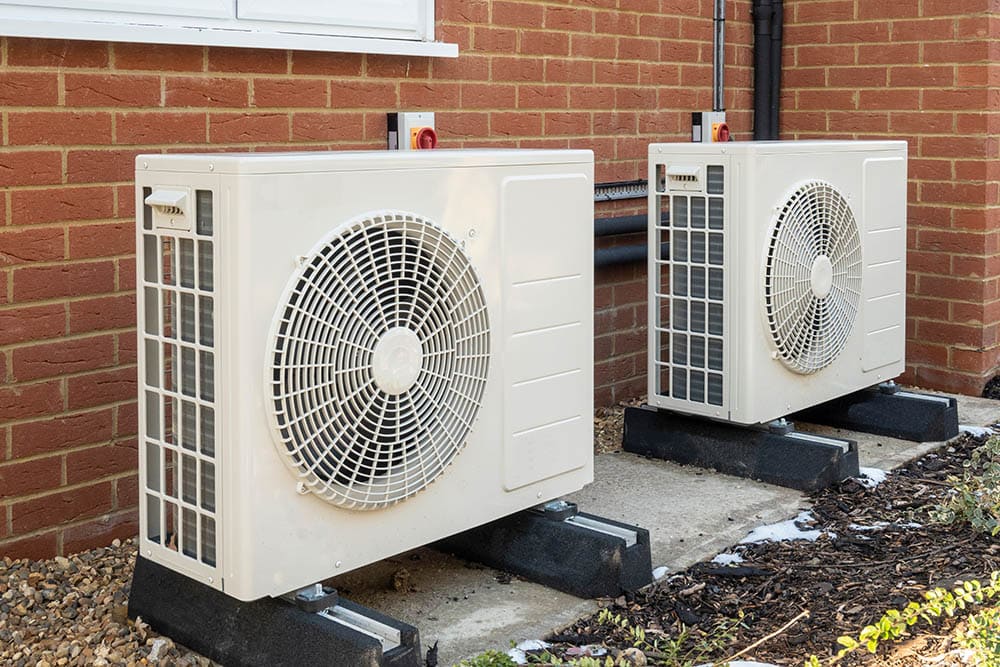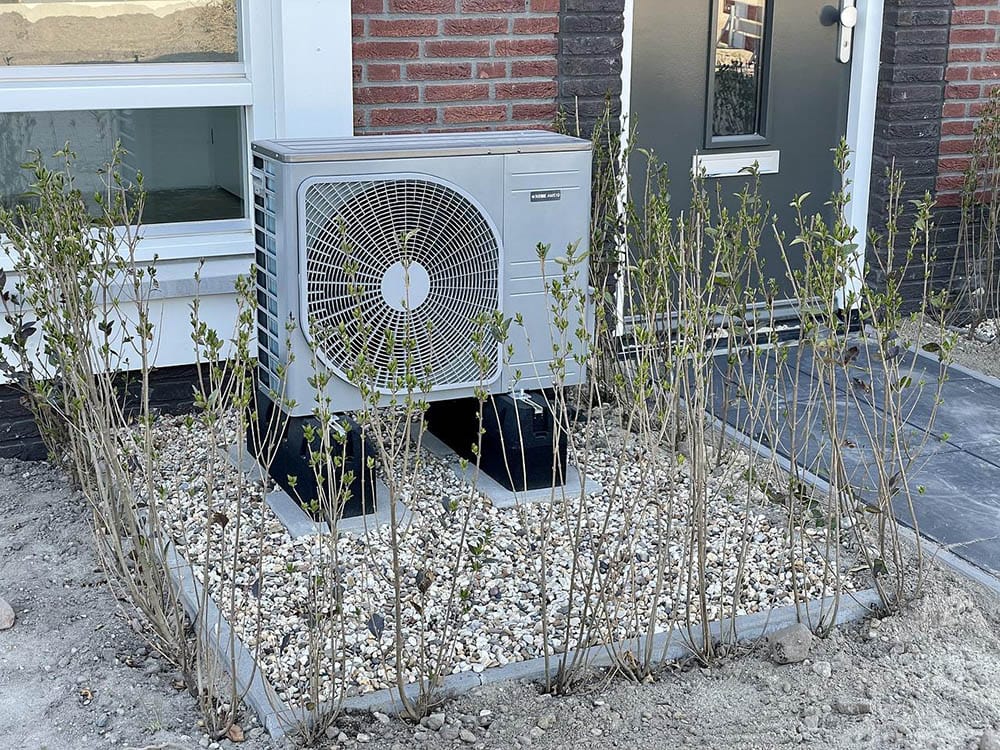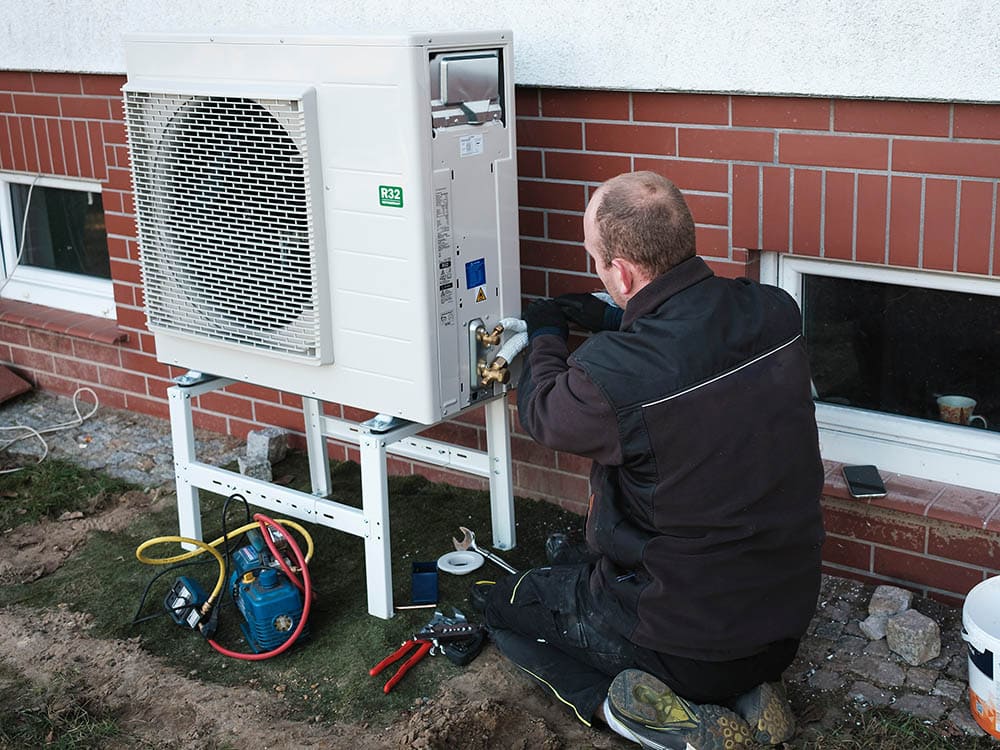4 Interesting Heat Pump Facts: 2023 Update
-
Codee Chessher
- Last updated:

Heat pumps are one of the best new ways to heat your home without breaking the bank and have been advertised as the future of home heating. Heat pumps are truly a marvel of modern engineering, able to heat and cool homes at a fraction of the energy used by a regular HVAC system. Let’s check out a few fascinating facts about heat pumps.

What Is a Heat Pump?
Heat pumps, also called air-source heat pumps, are a new form of heating system that draws heat energy from the outdoor air or ground. What makes heat pumps so useful is that they’re three times more efficient than a regular boiler. With renewable energy growing every year, this means heat pumps are an eco-friendly way to help transition to a zero-carbon world.
Heat pumps use the same type of cooling technology that refrigerators do and have actually been around for over 100 years. It’s just recently that they’ve become so efficient that they’re worth using over gas boilers. The average heat pump is up to 40% more efficient at heating and cooling than a regular boiler.
Heat pumps can be retrofitted onto any type of home and only use about as much space as your typical air conditioning system. Unfortunately, for optimal results, you’ll need a well-insulated home to keep the produced heat inside. Without adequate insulation, the heat will just leak out and be wasted.

Top 4 Interesting Heat Pump Facts
1. Heat Pumps Aren’t as Effective Below 40°F
The main downside of heat pumps is that they start to lose effectiveness once it starts getting very cold outside. Once it’s around freezing outside, your heat pump has to work harder to produce the same amount of heat, which makes it less useful than, say, a gas boiler.
At what temperature is a heat pump not effective? Heat pumps work best when the outside temperature is at least 40°F. They’ll still function at temperatures as low as -10°F, but they won’t be as efficient as the cost of running a gas boiler or other heating system.
2. Heat Pumps Can Heat and Cool Your Home
Despite the name, heat pumps can put out cold air and act as an air conditioner. It does this the same way that it warms your house. It draws cool air from outdoors or the ground, then runs it through a series of compressors and fans to make it even cooler. The air is then pumped into your home.
In many cases, you can replace both your air conditioning system and your heating system with a single heat pump. This saves on maintenance costs and uses less space, but insulation ultimately determines how effective the pump is at its job.

3. Heat Pumps Don’t Require Much Maintenance
By replacing both your heating and cooling systems with a heat pump, you drastically cut down on how much maintenance needs to be done. Rather than servicing two systems, you only need one to be regularly serviced. Plus, you can likely do it yourself.
Just like HVAC systems, heat pumps have air filters that need to be changed monthly. During the months you run the pump a lot, you may need to change it more frequently. Most importantly, the heat pump needs to be kept free of obstacles like debris, dust, plant matter, etc. These items can clog up the pump’s airways and stop it from working efficiently.
4. There Are Three Types of Heat Pumps
The most common type of heat pump is an air-to-air pump, also known as an air-source heat pump. They suck up air from the outdoors, cool or heat it, and pump it into your home.
In other situations, such as if you have a large yard, a geothermal heat pump might make more sense. These pumps have large systems of underground coils that suck up heat from the ground and pump it into your home. Naturally, these are typically more expensive than regular air-to-air pumps.
The third type of heat pump is a water-source heat pump. Unsurprisingly, these are mainly used to heat and cool buildings situated by a large water source, like a lake, well, or river.

Conclusion
Heat pumps are an invaluable tool that’s helping trend toward cleaner energy. Whether you need a better heater or want to replace your air conditioner, heat pumps are capable of dealing with it all and keeping your home at the perfect temperature.
See also:
Featured Image Credit: Nimur, Shutterstock
Contents
